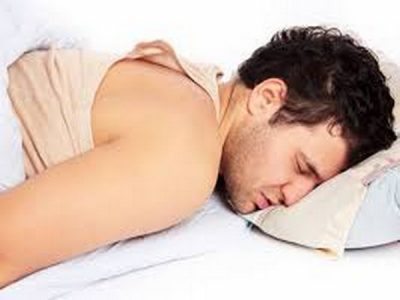- Home
- Editorial
- News
- Practice Guidelines
- Anesthesiology Guidelines
- Cancer Guidelines
- Cardiac Sciences Guidelines
- Critical Care Guidelines
- Dentistry Guidelines
- Dermatology Guidelines
- Diabetes and Endo Guidelines
- Diagnostics Guidelines
- ENT Guidelines
- Featured Practice Guidelines
- Gastroenterology Guidelines
- Geriatrics Guidelines
- Medicine Guidelines
- Nephrology Guidelines
- Neurosciences Guidelines
- Obs and Gynae Guidelines
- Ophthalmology Guidelines
- Orthopaedics Guidelines
- Paediatrics Guidelines
- Psychiatry Guidelines
- Pulmonology Guidelines
- Radiology Guidelines
- Surgery Guidelines
- Urology Guidelines
People going to bed after 3am have less control over OCD symptoms

Washington D.C.: The proverb early to bed and early to rise makes man healthy, wealthy and wise, rightly explains a recent study, as it suggests people who sleep after 3 a.m. at night have lower perceived control of obsessive thoughts.
Researchers from Binghamton University and State University of New York have conducted the study.
Binghamton University Professor of Psychology Meredith E. Coles and former graduate student Jessica Schubert (now at University of Michigan Medical School) monitored 20 individuals diagnosed with OCD and 10 individuals endorsing subthreshold OCD symptoms during one week of sleep.
The participants completed sleep diaries and daily ratings of perceived degree of control over obsessive thoughts and ritualised behaviours.
The finding indicated that previous night's bedtime significantly predicted the participants' perceived ability to control their obsessive thoughts and compulsive behaviour on the subsequent day.
"We're really interested in how this kind of unusual timing of sleep might affect cognitive functioning," said a researcher Jessica Schubert from the University of Michigan Medical School.
"It might be that something about shifting the timing of your sleep might reduce your ability to control your thoughts and your behaviours. So, it might make it more likely that you're going to have a hard time dismissing intrusive thoughts characteristic of obsessions, and it might make it more difficult for you to refrain from compulsive behaviors that are designed to reduce the anxiety caused by obsessive thoughts," she added.
On average participants in the study went to bed around 12:30 at night.
The patients, who met criteria for delayed sleep phase disorder, about 40 percent of the sample, went to bed around 3 a.m.
"I always knew you were supposed to get eight hours of sleep, but I was never told it matters when you do it," said Coles.
That we find that there are specific negative consequences of sleeping at the wrong times, that's something to educate the public about, Coles noted.
"It's one of our first efforts to actually shift their bedtimes and see if it reduces their OCD symptoms, and if this improves their ability to resist those intrusive thoughts and not develop compulsions in response to them," they concluded.

Disclaimer: This site is primarily intended for healthcare professionals. Any content/information on this website does not replace the advice of medical and/or health professionals and should not be construed as medical/diagnostic advice/endorsement or prescription. Use of this site is subject to our terms of use, privacy policy, advertisement policy. © 2020 Minerva Medical Treatment Pvt Ltd